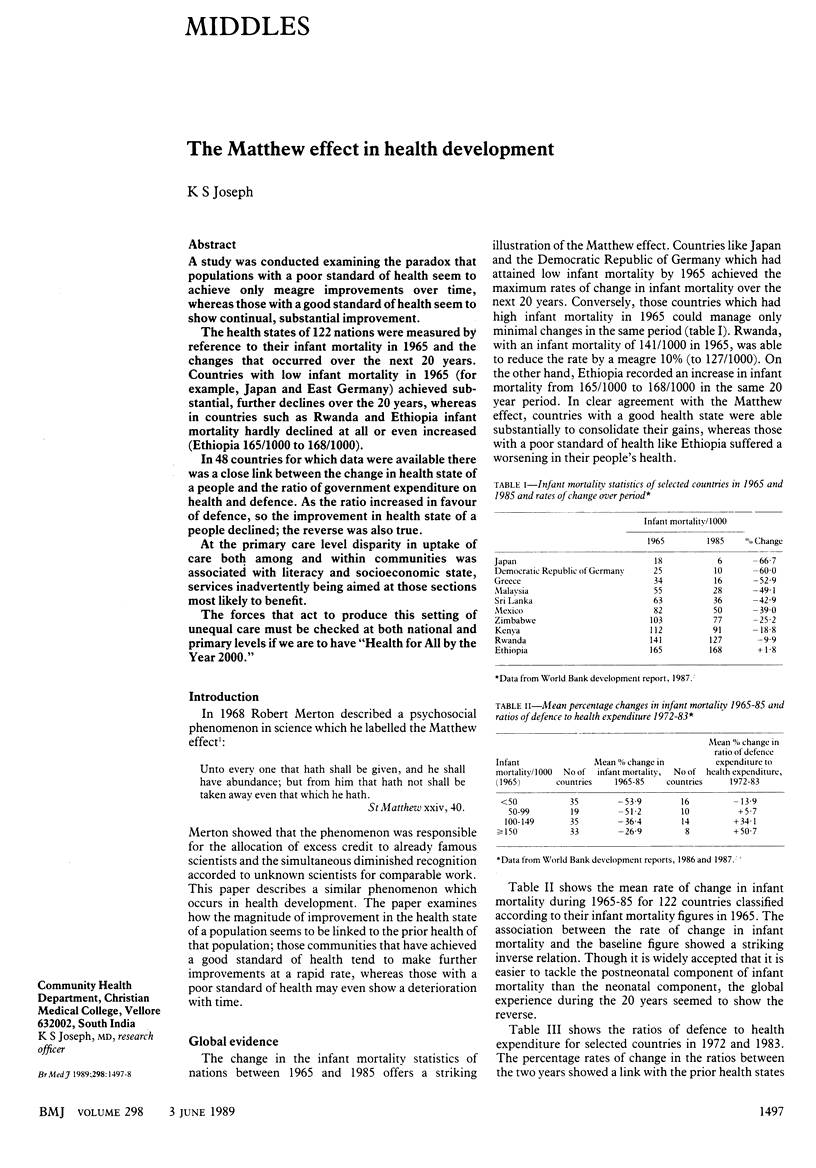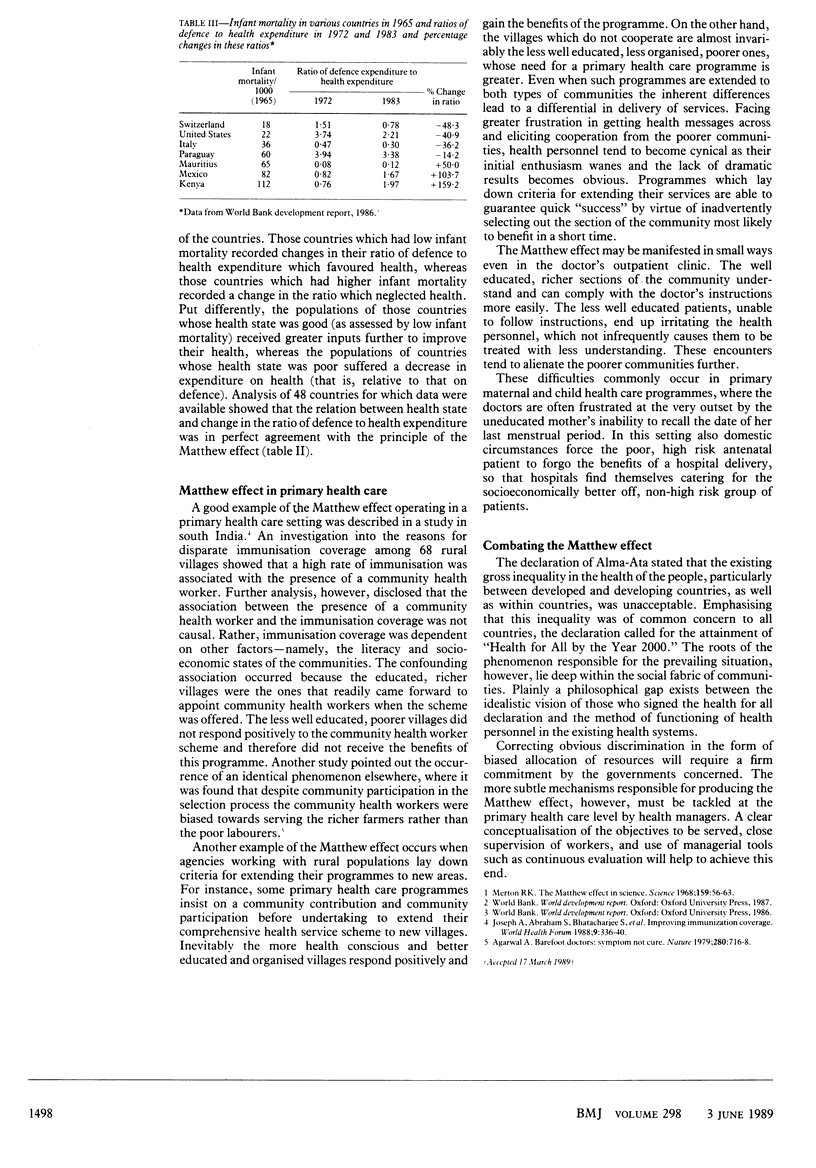Abstract
A study was conducted examining the paradox that populations with a poor standard of health seem to achieve only meagre improvements over time, whereas those with a good standard of health seem to show continual, substantial improvement. The health states of 122 nations were measured by reference to their infant mortality in 1965 and the changes that occurred over the next 20 years. Countries with low infant mortality in 1965 (for example, Japan and East Germany) achieved substantial, further declines over the 20 years, whereas in countries such as Rwanda and Ethiopia infant mortality hardly declined at all or even increased (Ethiopia 165/1000 to 168/1000). In 48 countries for which data were available there was a close link between the change in health state of a people and the ratio of government expenditure on health and defence. As the ratio increased in favour of defence, so the improvement in health state of a people declined; the reverse was also true. At the primary care level disparity in uptake of care both among and within communities was associated with literacy and socioeconomic state, services inadvertently being aimed at those sections most likely to benefit. The forces that act to produce this setting of unequal care must be checked at both national and primary levels if we are to have "Health for All by the Year 2000."
Full text
PDF

Selected References
These references are in PubMed. This may not be the complete list of references from this article.
- Barefoot doctors: symptom not cure. Nature. 1979 Aug 30;280(5725):716–718. doi: 10.1038/280716a0. [DOI] [PubMed] [Google Scholar]
- Joseph A., Abraham S., Bhattacharji S., Muliyil J., John K. R., Ethirajan N., George K., Joseph K. S. Improving immunization coverage. World Health Forum. 1988;9(3):336–340. [PubMed] [Google Scholar]
- Merton R. K. The Matthew effect in science. The reward and communication systems of science are considered. Science. 1968 Jan 5;159(3810):56–63. [PubMed] [Google Scholar]



